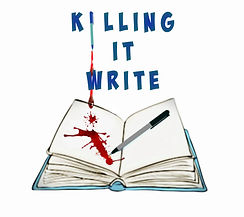THE IMPORTANCE OF UNDERSTANDING YOUR FICTION GENRE
- Gina

- Aug 10, 2025
- 4 min read
I have not forgotten how little I understood the publishing world when I started writing. In fact, I remember not even knowing those little things like what “WIP” or “HEA” mean, acronyms I saw constantly flitting about on various writing sites. Neither have I forgotten my struggle with the proper placement for my first completed novel, as far as genre, even though I was an avid reader. Researching and checking with actual authorities on the subject was one of the most important things I did for myself as a future author.
Now, years later, I have joined numerous Facebook groups particularly geared toward writers, places where both new and seasoned writers can find not just camaraderie but hopefully some help when it's needed. And I can’t begin to tell you how many times I have seen some relatively inexperienced writer ask for either advice or information and receive nothing but a jumbled conglomeration of opinions rather than honest facts.
As a reader, I prefer to consume genres that I enjoy, as I would guess most readers do as well. So, when choosing my next book to read, and if considering an author I’m not familiar with, I’m going to check the genre identification (the categories it's listed under) and the description of the book to make sure I get what I’m after.
Just as when I choose a movie to watch, the first thing I ask myself is: what am I in the mood for? Do I want to watch an action film, a comedy, a romance, what? And who is watching with me?
For instance, maybe I’ve got children with me, and I come across a movie getting ready to start: the title has a comedic ring to it, and the cover shot is colorful with bumbling-looking characters. I check the “movie info,” and it says “comedy” with a brief description of teenagers going off to camp and finding trouble abounds. So we pop our popcorn and get comfortable. Thirty minutes later, naked girls are running for their lives (where there was nothing about “adult content” listed), and the actors left behind are getting sliced and diced before our eyes by some murdering psychopath (and I didn’t see anything there that said “horror” either).
I’m going to be royally pissed, I can tell you. I might even send a message to the station that mislabeled the film, and I will, without a doubt, make sure everyone I know is appropriately warned: “This is not a movie for a six-year-old.”
So, if it's a book that has been mislabeled—like maybe I expected a rom-com but got mostly drama, or perhaps the category listing told me this was a sweet romance and instead I got spicy—my complaint is going straight to the author by way of my review.
My point here is: There are many genres to choose from when defining your work, and in fact, almost every book falls under more than one genre label. But please, please, please, do not make the mistake of labeling your book what you or your friends think will sell rather than what the book actually is. The former will not serve you well in the long run.
Literary agents and publishers specify the genres they work with and will not appreciate you soliciting them with something that doesn't fit their mold. Plus, by mislabeling your story and presenting it as something it's not, you will only succeed in showing that potential agent or publisher that you still have a lot to learn.
In addition, readers who have been misled will be a lot less likely to give you a glowing review and even more unlikely to return for more.
So remember, just as there are ratings for movies...
G General Audiences - All Ages Admitted
PG Parental Guidance Suggested - Some Material May Not Be
Suitable For Children
PG-13 Parents Strongly Cautioned - Some Material May Be
Inappropriate For Children Under 13
R Restricted
NC-17 No one 17 and Under Admitted
...there are specified genre definitions. And while romance is the most popular, let's focus on that for just a minute.
For starters, if the story does not end with a "happily-ever-after" or at the very least a "happy-for-now," it is not a romance. So, do not label it as one. It could fall under Women's Fiction, Drama, a Tragedy, or so many other genres, but a romance it is not.
In addition, if you're writing romance, be sure you understand the spice levels and the difference between Christian Romance and Clean Romance. I have read many books that claim to be Christian Romance and found not a single line in them that references faith, Christianity or God.
So, whether your goal is traditional or indie-publishing, as an author who hopes to build an audience, for your sake, as well as for the sake of those potential fans, learn and understand genre definitions before seeking out agents and/or publishers or before publishing on your own.
And please, do not rely on what other writers, readers, fans, friends and/or family members tell you is their opinion of where your book falls. Check the facts and genre rules or definitions from a reputable source like a publishing house or literary agent; someone who is in the business, who knows and understands the genre definitions because it does and will matter to your overall success.
If you would like to learn a lot more about genres and how to identify the genres or categories where your book fits, you might check out my Theme and Genre, Creative Writing Workshop. Just flip on over to https://www.killingitwrite.com/online-writing-workshops, available both in person (if you live near me) and online, no matter where you live.
Happy Writing!








Comments